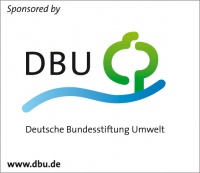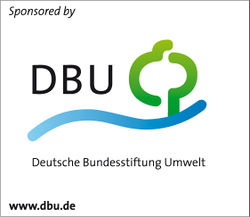Students:Summer school 2012
Case study - Ore mountains & Most region
The ISPoS Summer School is concentrated on the local problems of a specific region where the huge impacts of supra-regional industries are visible. Like last year, we will use the opportunities to see and experience the situation on site. Aditionally, we will not only explore and describe the current situation but also reflect upon it (in case studies), apply theoretical concepts (social capital), and analyse it using the actor analysis method applied to the local situation. We will deliver the results of our deliberations to the local inhabitants in public hearnig organized at the end of the week.
Knowledge base for Ore Mountans case study
Background materials and available internet resources are available at Knowledge base for Ore Mountains case study page
Methodological materials for students
Please study the Manual for Stakeholder Analysis [1] in advance!
- Interview outline & How to conduct an interview
- Case study writing outline
- Stakeholder mapping workshop outline
- Stakeholder profiles - definition and criteria for analysis
- Reframing workshop outline
Also basic concepts of sustainability should be used:
Actors in the Ore Mountains & Most region case study
See relevant page
Outcomes of past students' work
- Outcomes of the e-learning Module - ISPoS 2012 summer semester: Stakeholder profiles in Ore mountains & Most region case study
- Summer school 2011 outcomes: during this Summer school, students developed an in-depth analysis of the regional problems from the perspective of different regional stakeholders, including a SWOT analysis of the main regional issues from their point of view. See also:
Student Space
Comparison of sustainability issues on the Czech and German sides of the Ore Mountains border
Summer School Diary
- Saturday, Day One
- Sunday, Day Two
- Monday, Day Three
- Tuesday, Day Four
- Wednesday, Day Five
- Thursday, Day Six
- Friday, Day Seven - Public Presentation Day
- Saturday, Day Eight
- Sunday, Day Nine
Presentations of Speakers
- Pastor Michael Harzer - Heimat im Grenzgebiet - A presentaion about the history of Seiffen and its surroundings (03.09.2012) - File:HARZER Heimat im Grenzgebiet 03.09.2012.pdf
- 200(0) years of landscape on the foot of Ore Montains - 14 islands of revitalization of Most region - File:Beranek2.pdf
- Karel Beránek - Mostecko-Litvínovsko opportunities and risks of area development - File:Beranek1.pdf
- Jens Uhlig - Regional planning Saxony (Chemnitz Region) - File:UHLIG Seiffen 03.09.2012.pdf
- Mirek Havránek - Czech energy system: Policy and Outlook - File:Havranek2012.pdf
- Jan Melichar - External costs of breaching the regional ecological limits in the North Bohemian brown coal basin - File:Melichar2012.pdf
- Andrew Barton - A History of the City of Most - File:A History of the City of Most.pdf
Other Resources
- Pastor Michael Harzer - Heimat im Grenzgebiet - A presentaion about the history of Seiffen and its surroundings (03.09.2012) - File:HARZER Heimat im Grenzgebiet 03.09.2012.pdf
- Coal in the Soul (Czech title: Ženy SHR) - a documentary by M. Dušek and O. Provazník about the 'fate' of two women in the North Bohemian mining region around the city of Most, i.e. the Jezeří chateau custodian, Hana Krejčová, and Czech Coal regional policy PR spokesperson, Libena Novotná: Coal in the Soul documentary film with English subtitles
- The Ecological Mining Limits in the North Bohemian Brown Coal Basin - a booklet written and produced by a group of writers with very close involvement in the setting of the ecological mining limits around Horní Jiřetín and Černice. Společnost pro krajinu (2005), Ing. arch. Martin Říha, Ing. Jaroslav Stoklasa, CSc. Ing. Marie Lafarová, Ing. Ivan Dejmal, RNDr. Jan Marek, CSc. Petr Pakosta: File:Environment Mining Limits English.pdf or File:Environment Mining Limits Czech.pdf
- Example of use of old mining area - http://www.zollverein.de
References
- ↑ Zimmermann, A., Maennling, C. (2007). Mainstreaming participation, Multi-stakeholder management: tools for stakeholder analysis, 10 building blocks for designing participatory systems of cooperation. From the series: Promoting participatory development in German development cooperation. Deutsche Gesellschaft für Technische Zusammenarbeit (GTZ) GmbH. Available from: http://www.fsnnetwork.org/sites/default/files/en-svmp-instrumente-akteuersanalyse.pdf
| Author: Jana Dlouhá, Andrew Barton, Simon Burandt, Jana Timm. This article was published under Creative Commons Attribution-Share Alike 3.0 Unported License. How to cite the article: Jana Dlouhá, Andrew Barton, Simon Burandt, Jana Timm. (4. 07. 2025). Students:Summer school 2012. VCSEWiki. Retrieved 18:33 4. 07. 2025) from: <https://vcsewiki.czp.cuni.cz/w/index.php?title=Students:Summer_school_2012&oldid=3044>. |
Financing
- Participation of Czech students was financed from the ESF program "Investments in Education Development", project MOSUR
- Participation of German students was financed from the project of "Deutsche Bundesstiftung Umwelt"



